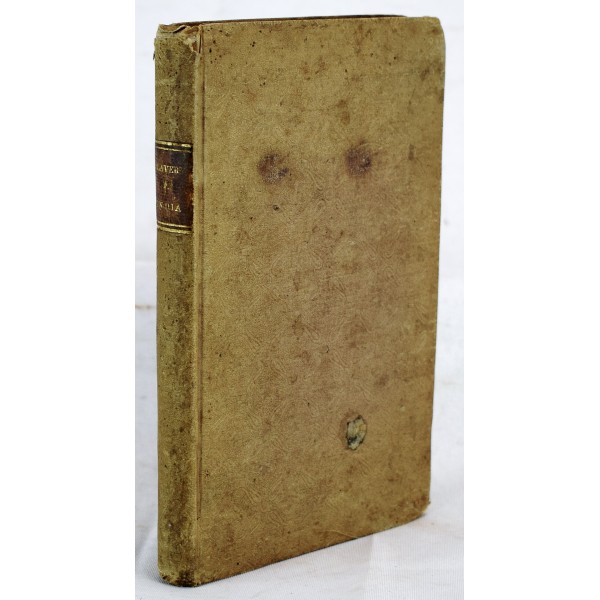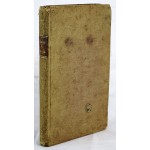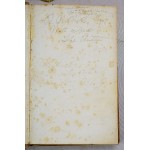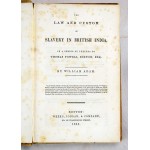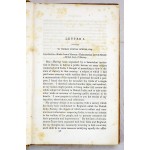Law and Custom of Slavery in British India
Law and Custom of Slavery in British India
William Adam; Thomas Fowell Buxton
Weeks, Jordan & Co., 1840
First Edition. Bound in publisher's textured cloth. Solid binding. Internally foxing, staining. Inscribed to R. Hildreth and signed from "The Author." AI 40-26.
Adam was a member of the [English] Baptist Missionary Society, serving in northern India 1817-1821. Adam stayed in India until 1838, working to establish the Calcutta Unitarian Society. He became Professor of Oriental Linguistics at Harvard University and authored a series of letters to warn against the prevailing slavery in the British colonies to Thomas Fowell Buxton, Esq., a prominent British member of parliament. Buxton was a well-known abolitionist (founder of the anti-slavery society), associated with the Gurneys, the Religious Society of Friends (Quakers), and other social reform movements of the day. Adam attended the World's Anti-Slavery Convention in London, 1840 with William Lloyd Garrison, Charles Lenox Remond and Nathaniel Peabody Rogers.
Contents: I: Introduction Hindu Law of Slavery Muhammadan Law of Slavery British Law of Slavery; II: Examination of the Legality of Hindu and Muhammadan Slavery under the British Government in India; III: Administration of Hindu and Muhammadan Slave Law under the British Government in India; IV: Ameliorations of the Law and Practice of Slavery under the British Government in India; V: Number of Slaves in British India; VI: The Origin and Sources of Slavery in British India; VII: Occupations and Treatment of Agrestic Slaves Domestic Slaves in British India; VIII: Unsuccessful attempts to ameliorate the Law and Practice of Slavery in British India Abolition of Slavery; Appendix: Mr HT Colebrooke's Opinions on slavery in India; Dr Francis Buchanan on Slavery in the South of India; Mr D Liston on Slavery in Gorakhpur; Case of the Ship Adramytte; Abolition of Slavery in Ceylon
